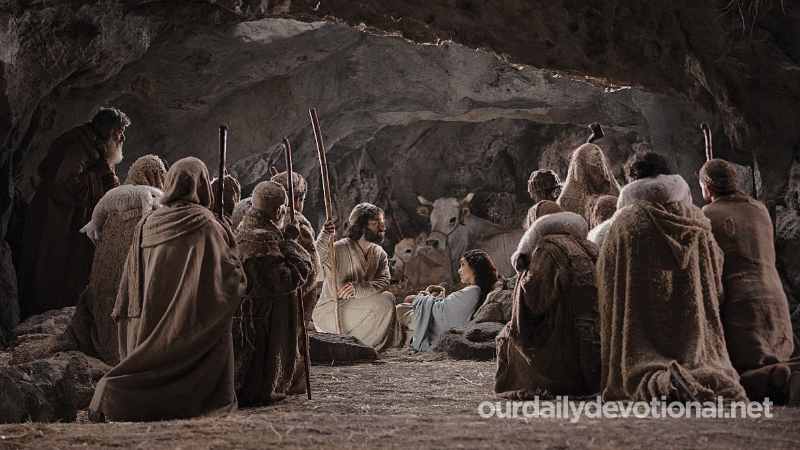Gr. «apokrypha», «hidden».
This term is applied to a number of books and writings that appear in the Greek version of the LXX, but do not appear in the Hebrew Bible. After almost all of them after the 3rd century BC, they went from the LXX to the Latin version (Vulgate) and to all the ancient and modern versions until the beginning of the 19th century.
The synagogue did not consider them inspired at all. Certain authors of the same books deny them all inspiration (see "Prologue of Sirach"; 1 Mac. 4:46; 9:27; 2 Mac. 15:38, 39). They are not part of the Jewish canon. Jesus never mentions them, and neither do the apostles. Added to this are spiritual reasons, due to the disfavor with which these books were received.
In the 4th century, the same translator of the Latin Bible, Jerome, disqualified the set of books introduced by the LXX as part of the OT. The Apocrypha are not at all distinguished by their spiritual value; The prophetic breath is conspicuous by its absence, and many of the doctrines expressed there contradict the doctrine of the Hebrew canon and that of the NT, such as the intercession of angels and saints (Tob. 12:12; 2 Mac. 15 :14; Bar. 3:4), the redemption of souls after death (2 Mac. 12:42, 46), etc.
The "Church of Rome" has preferred to follow the criteria of Augustine of Hippo to that of Jerome, and considers as canonical all the books accepted by the LXX and the Vulgate, except "3 and 4 Esdras" and the "Prayer of Manasseh", according to dogmatic decision adopted at the Council of Trent (1546) and confirmed at the First Vatican Council (1870).
Instead, the Reformation adhered to Jerome's views. In his German version of the Bible (see BIBLE VERSIONS), Luther rejected them from the pages of the OT, placing them grouped between the OT and the NT, with the following note: "Books that should not be considered equal to the Holy Scriptures , but which are nevertheless useful and good to be read.»
The Westminster Confession of Faith (1643) states: "The books called Apocrypha are not divinely inspired, nor do they form part of the Canon of Scripture, nor have they any authority in the Church of God. "They should not be considered any more than another kind of human writing." David Martin wrote, for his part, in 1707, in the preface to the Apocrypha: «These books are read by very few people, and with the exception of Sirach, Wisdom, the first book of Maccabees and chapter 7 of the second, the rest barely if it's worth reading."
It was in 1826 that the British and Foreign Bible Society resolved to exclude all apocryphal books from its editions. This decision, however, has been revoked since 1968, when the United Bible Societies committed to cooperation with Rome. The result of this was the translation called "God speaks today", or also "God comes to man"; For this version, in the editions for Catholic consumption, the United Bible Societies include the apocryphal books, thus breaking a long tradition of printing only the Word of God without additions.
Classification. The apocrypha can be classified as follows, following their literary character:
(a) Historical accounts:
1 and 2 Maccabees.
(b) Patriotic works:
Maccabees,
Tobias,
Judith,
Additions to Esther,
3 Esdras,
Suzanne,
Bel and the Dragon.
These last two are additions to Daniel.
(c) Lyrical and mystical writings:
Prayer of Azariah (addition to Daniel),
Prayer of Manasseh,
Baruch,
Epistle of Jeremiah.
(d) Moral and religious books:
Ecclesiasticus (or Wisdom of Jesus, son of Sirach),
Wisdom of Solomon.
The book 4 Esdras and 4 Maccabees are part of the pseudoepigraphs. See PSEUDOEPIGRAPHICS). It is a set of Judeo-Christian writings that belong to the same group as the Apocrypha, but have always been kept outside of any pretension of canonicity; They are generally presented under the name of a famous person.
Unlike the canonical books of the OT, written in Hebrew with the exception of a few short passages in Aramaic, the Apocrypha are written in Greek. In any case, it should be noted that Judith, Sirach, Baruch 1 to 3:8, and 1 Maccabees were originally written in Hebrew.
Meaning of APOCRYPHA (Book)
Gr. «apokrypha», «hidden».
This term is applied to a number of books and writings that appear in the Greek version of the LXX, but do not appear in the Hebrew Bible. After almost all of them after the 3rd century BC, they went from the LXX to the Latin version (Vulgate) and to all the ancient and modern versions until the beginning of the 19th century.







